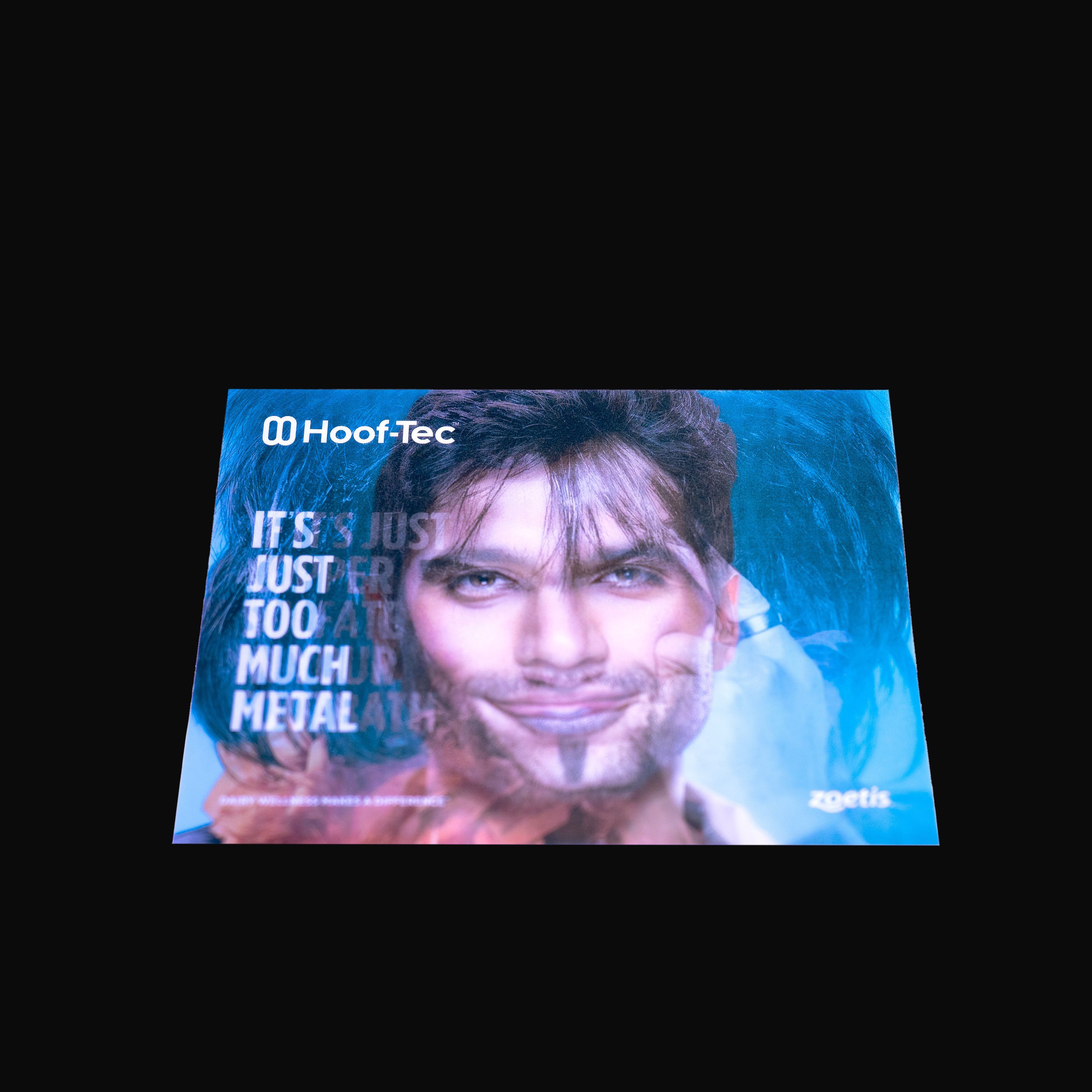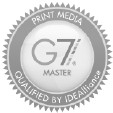Lenticular is a unique process that prints a specially prepared image onto a plastic lensed substrate for an astounding 3-D effect. Examples of lenticular printing include flip and animation effects such as winking eyes, and modern advertising graphics that change their message depending on the viewing angle.
THERE ARE THREE MAIN TYPES OF LENTICULAR PRINTS:
TRANSFORMING PRINTS
Two or more very different pictures are used, and the lenses are designed to require a relatively large change in angle of view to switch from one image to another. This allows viewers to easily see the original images, since small movements cause no change. Larger movement of the viewer or the print causes the image to flip from one image to another—creating the flip effect.
ANIMATED PRINTS
The distance between different angles of view is average, so that while both eyes usually see the same picture, moving a little bit switches to the next picture in the series. Usually many sequential images would be used, with only small differences between each image and the next. This can be used to create a movement/motion effect, or a zoom/morph effect, in which part of the image expands in size or changes shape as the angle of view changes.
STEREOSCOPIC EFFECTS
The change in viewing angle needed to change images is small, so that each eye sees a slightly different view. This creates a 3D effect without requiring special glasses, using many images.






